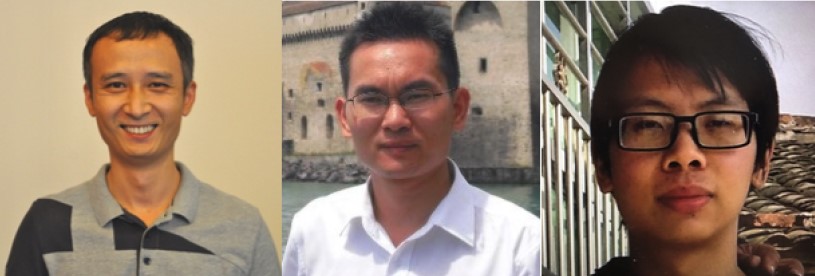Prominent anti-discrimination activist Cheng Yuan, and his two colleagues, Liu Dazhi and Wu Gejianxiong, have been held incommunicado at the Hunan Provincial State Security Department Detention Centre in Changsha for two months now.
The activists, who worked at the non-governmental organization Changsha Funeng, were detained on 22 July and formally charged with "subversion of state power" (涉嫌颠覆国家政权) on 26 August. They have not been allowed to see their lawyers.
Cheng Yuan’s wife, Shi Minglei, and older brother Cheng Hao have both been harassed and threatened by the police after they demanded information about the case and sought to publicise the arrests.

Cheng Yuan, Liu Dazhi and Wu Gejianxiong
The Changsha Three, as they are known, are the latest civil society activists to be detained in a widening crackdown on groups and individuals who have offered valuable concrete help and advice to ordinary Chinese citizens and workers over the last decade or so.
Others still in detention include the citizen journalists Wei Zhili, Ke Chengbing and Yang Zhengjun, who were active in helping migrant construction workers with occupational disease. They were detained in January and February this year and were held under “residential surveillance at a designated location” until they were formally arrested on 5 August for “picking quarrels and provoking trouble” (寻衅滋事罪) and transferred to a detention centre. In May, police raided several civil society organizations in Beijing, Guangzhou and Shenzhen that supported migrant workers, detaining at least four social workers employed there. And on 30 August, veteran labour activist, Meng Han, who has twice been imprisoned, was taken away by police from his home in Guangzhou.
Cheng Yuan, who founded Changsha Funeng in 2016, had long been involved in anti-discrimination cases, particularly cases of employment discrimination against people with Hepatitis B and HIV. A self-taught barefoot lawyer, Cheng was one the earliest advocates for the tens of millions of people in China who were routinely denied employment because of their Hepatitis B status. The work of Cheng and others in the 2000s helped pave the way for a greater understanding and tolerance of people with Hepatitis B but discrimination remains a problem today.
Cheng was involved in China’s first successful HIV discrimination lawsuit in 2013, in which a teacher, Xiao Qi, was awarded 45,000 yuan in compensation after he had been refused employment by the Jinxian county education department in the central province of Jiangxi.
The official Xinhua news agency reported at the time that, despite excelling on his teacher qualification examination, Xiao Qi was denied a job in the county school system when a pre-employment health check revealed his HIV status.
“I was indignant when I learnt that I lost the chance to be a teacher, but the compensation I got just illuminates that the law can guarantee the legal rights of people with HIV/AIDS,” Xiao Qi told Xinhua.
Cheng also helped several people with physical disabilities file lawsuits for their employment rights and their right to education. One lawsuit asking for accommodation to enable a disabled student to take her examination was widely reported in China. Indeed, Cheng’s work was often praised in the official Chinese media prior to his detention.
For more information on the Changsha Three, please see the China Human Rights Defenders profile.
